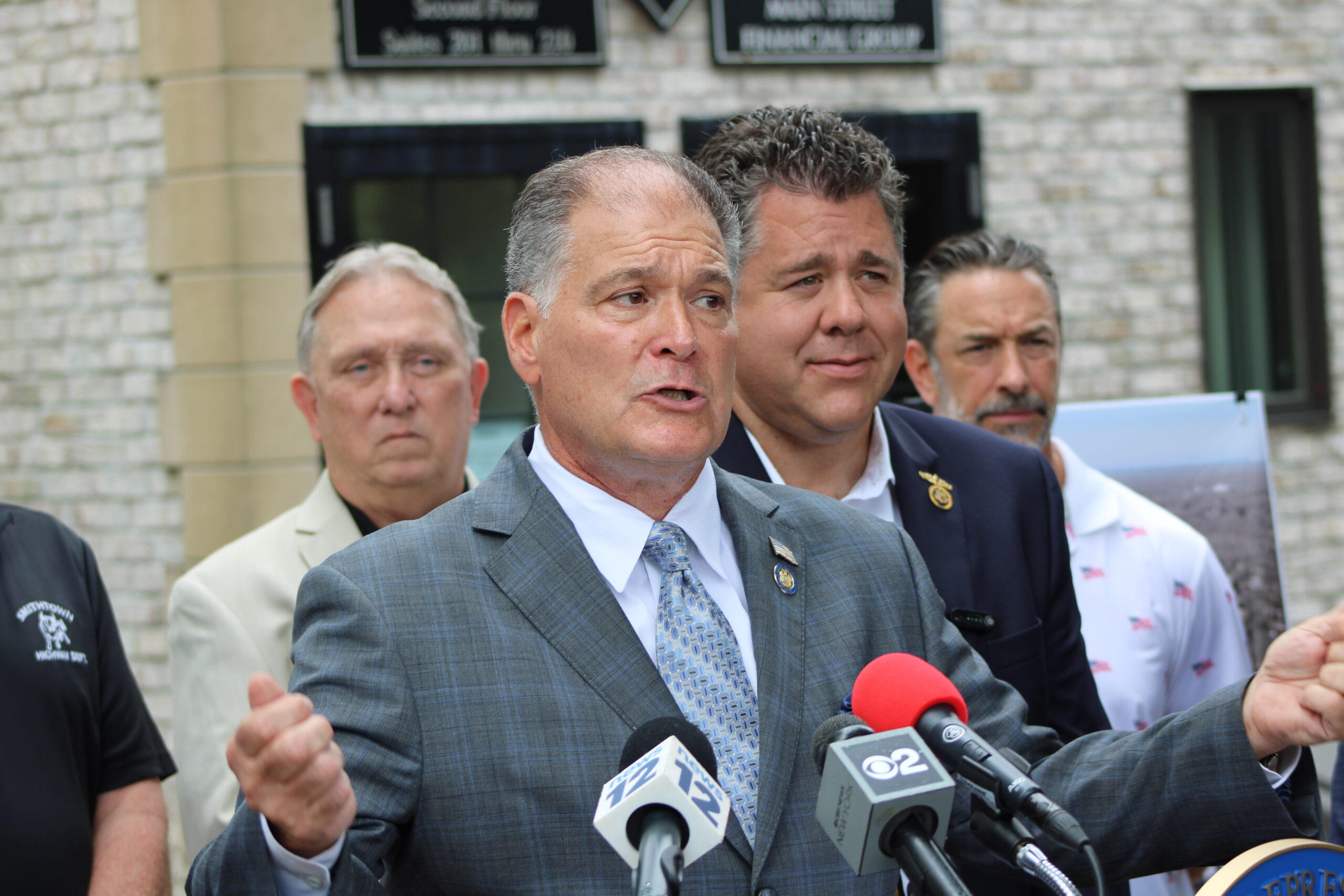By Ashley Pavlakis
Cover credit – Matt Meduri
Election season is upon us and there is a wealth of decisions to be made in New York State. One proposal on the docket for voters is Proposition One. This proposal is set to be voted on in November when voters head to the polls. The potential amendment remains controversial among voters, which makes it important to understand what Proposition One is.
In the New York State Constitution Article I, Section II: Proposition One, as it stands right now, protects against unequal treatment. The law protects based on race, color, creed, and religion. The new proposal aims to amend proposition one to include protections based on ethnicity, national origin, age, disability, sex, sexual orientation, gender identity, gender expression, pregnancy, pregnancy outcomes, and reproductive healthcare and autonomy.
Senator Mario Mattera (R-St. James) represents the Second District in the New York State Senate, which encompasses all of Smithtown and Huntington. Mattera, a father and husband, has lived in St. James his whole life. As a leader and member of the Plumbers Local Union #200, he is dedicated to protecting the needs of Long Island workers and their families.
“My main concern is that it is a wolf in sheep’s clothing. It purports to be about reproductive rights, which are not in danger in New York State, but it has many facets that many voters are unaware of and that strikes me as misleading,” Mattera told The Messenger. “There are components of this proposition that will restrict a parent’s rights as it pertains to their children and negate the ability of schools to protect their female athletes from unfair and dangerous competition. Put simply, this proposal would be a disaster for our state.”
Our world is facing new challenges daily when it comes to rights for gender and gender identity. This proposition has the potential to cause issues from the top down. Elected officials, government officials, hospitals, schools, and local businesses will be on the receiving end of this proposal.
If we break down what voting ‘yes’ or ‘no’ on this issue means, voters might feel more confident in making a decision when they head to the polls in November.
Voting ‘yes’ would lead to many changes within New York State, some of which include, but are not limited to, minors not requiring parental consent to move forward with medical procedures such as transgender intervention; schools not preventing biological males from competing in girls’ sports despite their gender identities; and individuals’ bathroom and locker room choices, both in school and in public.
“Schools should have the ability to make decisions for the students in their communities and this proposition will remove that right. The main thing I am focusing on is the ability to keep their female student-athletes safe. With the increase of biological boys competing against girls, we have the likelihood of seeing lost opportunities for young biological girls and potentially avoidable injuries,” said Mattera.
Voting ‘no’ would leave Article I Section II of the New York State Constitution as it is. Voters are now tasked with making an important decision. At the forefront of this proposal are children, who are being taken into consideration because it is their lives being heavily affected by the outcome of this decision.
“It is clear that the issue of reproductive rights is being used to sell this and that is clearly misleading. If the intent was solely about the reproductive rights issue, then that should be the sole focus of the proposition,” said Mattera. “Voters can decide how they feel on that issue, but this issue is being used to sway voters into voting for something that is clearly not necessary in New York State and that will have numerous consequences that most voters will be unaware of. Abortion is legal in this state and that is not in danger, but they are using this as a scare tactic to get voters to approve this proposition.”
Senator Mattera has made it clear where he stands on Proposition One, especially regarding New York State. He remains focused on the youth of society and providing them with the best possible resources to succeed as citizens.
“I am working with school supervisors to protect our young students from the impact of mental health, from the addiction of smartphones, and to do whatever I can to help our young men and women,” said Mattera. “Most of our school-age children were greatly impacted socially and mentally from the COVID mandates, and we as a state need to give our schools the resources they need to help these children grow and succeed.”




